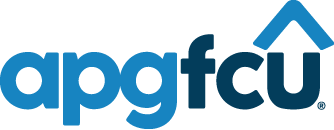 Your credit score can be like the classic chicken-and-egg situation. You need good credit to secure a loan, but you need the loan so you can build or repair your credit.
Your credit score can be like the classic chicken-and-egg situation. You need good credit to secure a loan, but you need the loan so you can build or repair your credit.
Luckily, there are some simple steps you can take to get yourself in a great place on your financial journey. Read on to find out more about how to build credit.
What You Need to Know About Credit
Your credit score is based on your financial activity, but it might surprise you to find out what affects your score — and what doesn't. Here's a quick breakdown of what counts:
Items that impact your credit:
- Your payment record. Loan and credit card payments will usually improve your score if made on time and dent your score if paid late, especially if they go to collections.
- The different types of credit accounts you have. Whether an auto loan, personal loan, mortgage or credit card, it can be beneficial to open various types of credit accounts - as long as you can make the proper payments.
- How long your credit accounts have been open. Typically, the longer, the better!
- How much of your credit you've used. Known as your credit utilization ratio; under 30% is best. For example, it's good to use only $300 of your $1,000 credit limit.1
Items that don't usually impact your credit:
- Your checking account and debit card activity, including a low or high balance.
- Your utility bills, unless they're late and go to collection; then they could ding your score.
- Your income. Whether high or low, it doesn't typically influence your score.
- Getting denied for a credit application. Though your credit score may take a small, temporary hit when you apply for credit accounts, denial should not lower it further.
How to Build Your Credit
Now that you know what goes into your credit score, it's time to think about how to build or repair it.
An easy way to do this is to take out a small, low-interest loan (or open a credit card with a low limit) and start making regular, timely payments. To decide which direction to take, you need to know the difference between secured and unsecured loans.
How Secured Loans Work
- A secured loan means your lender may use the funds in your share savings account as collateral for your loan. This acts as a safety net to minimize risk for the lender for borrowers with no established or a challenged credit history.
- Auto loans and home equity loans are considered secured loans.
- A secured loan may offer more competitive rates than if you get an unsecured loan with a less-than-average credit score.
- The amount you can borrow might be tied to the amount in your savings account. Share-secured loans are a great way for members to build or repair their credit. Your financial institution can use existing funds in your share savings, money market, or certificate account to secure a loan.
How Unsecured Loans Work
- An unsecured loan means you're not providing any asset as collateral.
- A personal loan is one of the most common type of unsecured loan and you can use the funds for anything you need.2
- Your rates and the amount you can borrow will likely be determined by your credit score.
The APGFCU Credit Builder Program
You deserve the chance to grow with your dreams. If you've made a few financial missteps and are wondering how to rebuild credit, our Credit Builder Program could help you get back on track.
By making timely payments on a secured or unsecured loan of your choice, we can help your credit score get back in shape.
Loans in our Credit Builder Program include:
- Auto loans
- Personal loans
- Education loans
- Home improvement loans
- Boat loans
- RV loans
- Motorcycle loans
- Manufactured home loans
- Home equity loans (Fixed)
How Credit Is Reported
You don't have to do anything extra to make sure your payments count toward your score — your relevant financial activity is electronically sent to at least one of the three main credit bureaus: Experian, Equifax, and TransUnion.
- Each bureau uses a slightly different formula when calculating your credit, so don't be surprised if your score varies slightly.
- You can check your report through each bureau every 12 months at no cost. Due to the pandemic, the three bureaus have granted the public access to pull their credit reports weekly for free to help improve your financial health until April 20, 2022.
Smart Money Management Tips
Once your credit score has started to improve, it is important to continue your efforts to better your financial standing. Here are a few tips to keep your finances in order:
- Set a monthly budget and do your best to stick to it.
- Always pay your loan, credit card and utility bills on time.
- If possible, pay more than the minimum amount to pay down debt faster and save on interest.
- If you know you're going to be late on a payment, be sure to reach out to your lender or provider and see if you can come to an arrangement to avoid hurting your credit.
- Don't borrow more than you can comfortably repay.
How to Build Credit With APGFCU
Good credit is the key to reaching your goals, such as purchasing a car, closing on a house or taking a dream vacation. Plus, a good credit score means you'll always be able to cover unforeseen expenses.
If you're just getting started on your credit journey or you need to turn things around, now is a great time to take steps to build your credit. Click below to find out how APGFCU can help!
1https://www.experian.com/blogs/ask-experian/what-should-my-credit-card-utilization-be/
2https://www.consumercredit.com/secured-loan-vs-unsecured-loan/
All loans subject to credit approval.
